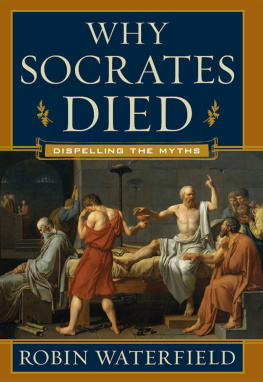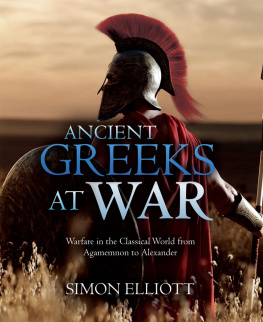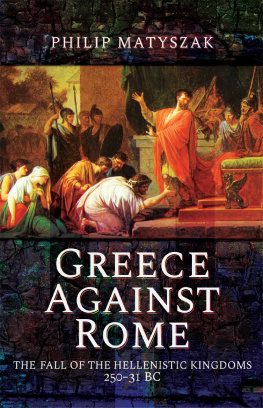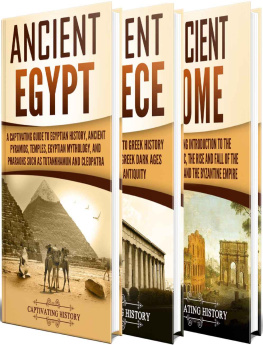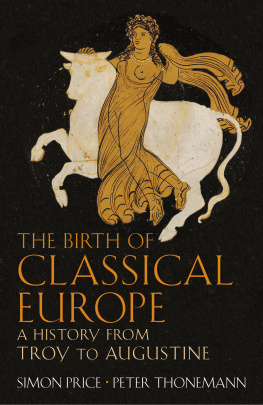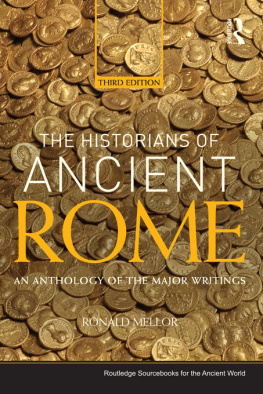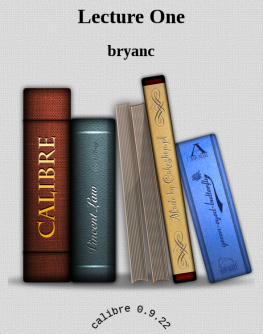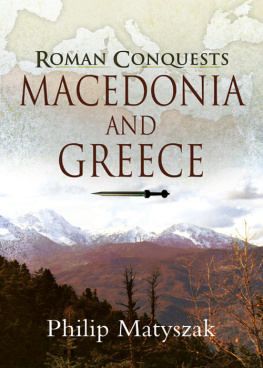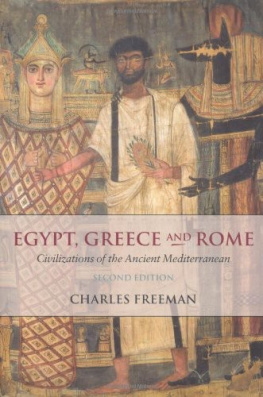Contents
Guide
Page List
TAKEN AT THE FLOOD
TAKEN AT THE FLOOD
The Roman Conquest of Greece
Robin Waterfield


Great Clarendon Street, Oxford, OX2 6DP,
United Kingdom
Oxford University Press is a department of the University of Oxford.
It furthers the Universitys objective of excellence in research, scholarship,
and education by publishing worldwide. Oxford is a registered trade mark of
Oxford University Press in the UK and in certain other countries
Robin Waterfield 2014
The moral rights of the author have been asserted
First Edition published in 2014
All rights reserved. No part of this publication may be reproduced, stored in a retrieval system, or transmitted, in any form or by any means, without the prior permission in writing of Oxford University Press, or as expressly permitted by law, by licence, or under terms agreed with the appropriate reprographics rights organization. Enquiries concerning reproduction outside the scope of the above should be sent to the Rights Department, Oxford University Press, at the address above
You must not circulate this work in any other form
and you must impose this same condition on any acquirer
Published in the United States of America by Oxford University Press
198 Madison Avenue, New York, NY 10016, United States of America
British Library Cataloguing in Publication Data
Data available
Library of Congress Control Number: 2013019020
ISBN 978-0-19-965646-2
Printed in Great Britain by
Clays Ltd, St Ives plc
Links to third party websites are provided by Oxford in good faith and
for information only. Oxford disclaims any responsibility for the materials
contained in any third party website referenced in this work.
This is for two sets of friends, two wonderful families,
the Snowdons and the Stanfords
There is a tide in the affairs of men
Which, taken at the flood, leads on to Fortune.
William Shakespeare,
Julius Caesar, Act 4, scene 3
CONTENTS
IS THERE ANYONE ON earth who is so narrow-minded or uninquisi-tive that he could fail to want to know how and thanks to what kind of political system almost the entire known world was conquered and brought under a single empire, the empire of the Romans, in less than fifty-three yearsan unprecedented event? So wrote the Greek historian Polybius of Megalopolis at the beginning of his monumental work. The 53-year period he had in mind (counting inclusively) stretched from the start of the Second Punic War in 219 BCE until 167, the year of the overthrow of the Macedonian monarchy by Rome and the division of Macedon into four independent republics.
The period I cover in this book includes Polybiuss fifty-three years, though I start a little earlier and end a little later. I start with the First Illyrian War of 229 and a final chapter looks ahead past 167 to the destruction of Corinth in 146. The importance of the period lies fundamentally in the clash of the superpowersRome, Macedon, and Syria. But I start with the so-called Illyrian wars (they hardly deserve the name), not least because I believe that their contribution to the eventual clash of the superpowers has not been fully appreciated, or has at least been underestimated by recent historians.
This was a period of extraordinary activity and expansion by Rome, but, as the subtitle of the book implies, my focus is limited to the Greek east, and chiefly the Greek mainland. Roman imperial expansion into Hellenized lands further east than the Balkan peninsula took place later, though the foundations were laid in my period. Roman expansion in the west was happening more or less simultaneously, by means of a series of wars with the wealthy North African trading city of Carthage (the Punic wars), and then with Spanish tribes. These events, critical for Mediterranean history, will play a part in the book chiefly and merely in the sense that Roman experiences in the west conditioned their responses to opportunities and events in the eastreaction to Hannibal and depletion of resources being the most telling factors. In any case, the titanic struggle with Carthage has tended over the years to distract attention from the equally critical events that were happening further east.
I have broken up the (largely military) narrative of events with commentary, and with asides on social and cultural matters, that illuminate and add depth to our understanding of the period. For instance, when the conquest of Greece began, Rome was still relatively poor and simple, and so when it came into more constant contact with its older neighbors, with their long cultural history and urbane reputations, insistent questions arose: How much of this culture can we adopt without losing our identity? Would it matter? What is our identity? The Romans were forced to define themselves by contrast with Greeks, and the beginning of that process of self-definition is a fascinating aspect of the history of the periodfascinating, but hard to grasp. At the same time, of course, the Romans were also refining their impressions of the Greeks. There is just enough evidence to give us tantalizing glimpses of what the Romans thought of the Greeks, and vice versa.
This book is part of a series designed for consumption not only by scholars, but also by undergraduates and anyone interested in ancient history. Apart from the addition of aids such as a glossary and a timeline, this consideration has shaped the book mainly in that I have avoided going in any depth into the controversies that abound. I should take this opportunity, therefore, to say something about a few broad conclusions to which my reading and thinking have led me.
First, and most importantly, where Roman imperialism is concerned, I fall closer to the camp of William Harris than I do to that of Maurice Holleaux or his later allies. That is, I believe that the Romans were more aggressive imperialists in this period than used to be commonly held before the first edition of Harriss War and Imperialism in Republican Rome in 1979that they did not go to war only when they were truly threatened (though they might pretend they were), nor were they dragged into entanglement with the east by accident or a series of accidents (Gruen, simplified), nor were their eastern wars purely the result of factors systemic to the Mediterranean world of the time (Eckstein, simplified).
The difficulty in appreciating this, and the reason that redoubtable scholars can look at the same body of evidence and arrive at contradictory conclusions, is that Roman imperialism, at this stage, took on a peculiar form. For a long time, there was no actual annexationno taxation, no army of occupation, no imperialist administrative structures. Every time the Romans came, they also withdrew, in a tidal pattern that lasted several decades. But, in my view, each time they withdrew, they left more of the Greek world under a form of indirect, extralegal rule. It was an economical and effective system, requiring only deference from their subjects, and little in the way of commitment of resources by Rome. However, it did require the Romans to display enough resolution, and even ruthlessness, while they were there, to command deference while they were absent even from those who had not already been weakened by the previous round of brutality.



